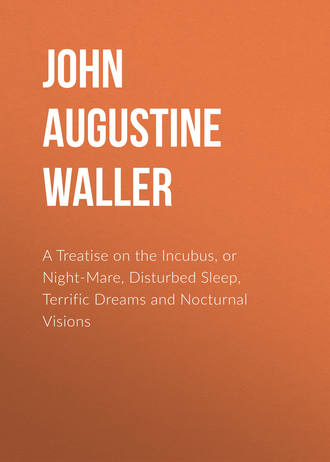 полная версия
полная версияA Treatise on the Incubus, or Night-Mare, Disturbed Sleep, Terrific Dreams and Nocturnal Visions
If any unfortunate sufferer from this distressing complaint shall obtain relief by the method here laid down, the end of writing this little Treatise will be fully answered, which is to restore the blessings of repose to those who are deprived of it by this hideous fiend.
FINIS1
The learned Theophilus Bonetus observes, that this disease was unknown to Hippocrates and Galen.—Vide Polyath. Lib. ii. Cap. xxviii. De Incubo et Catalepsi. Unknown it could not be to such observers of nature, although they may not have written upon it. In the book however, ascribed to Galen, entitled “De Utilitate Respirationis,” the following short, but comprehensive notice, is to be found concerning it.—Et Ephialtes quædam Epilepsia, quæ fit in somno: fit autem ex mistione tanquam Epilepsia. Ideoque non in vigilante, sed in dormiente: ut enim, prædictum est somnus et epilepsia fiunt in eodem loco, et ex simili causâ: unde Aristoteles dicit epilepsiam esse somnum quendam: verum ephialtes longo tempore perdurans in Epilepsiam convertitur.
2
Memorat denique Silimachus Hippocratis sectator, contagione quâdam, plurimos ex istâ passione, (i. e. Incubo) velut lue, apud Urbem Romam confectos.—Cœl. Aurel. lib. i. cap. iii. de Incubone.
3
Forrestus incubo affectus putabat, pectus suum comprimi a cane nigro, unde respirare non potuit, utut fæmina videret esse somnium fallax, uti de se refert.—L. 10. Obs. 51.

